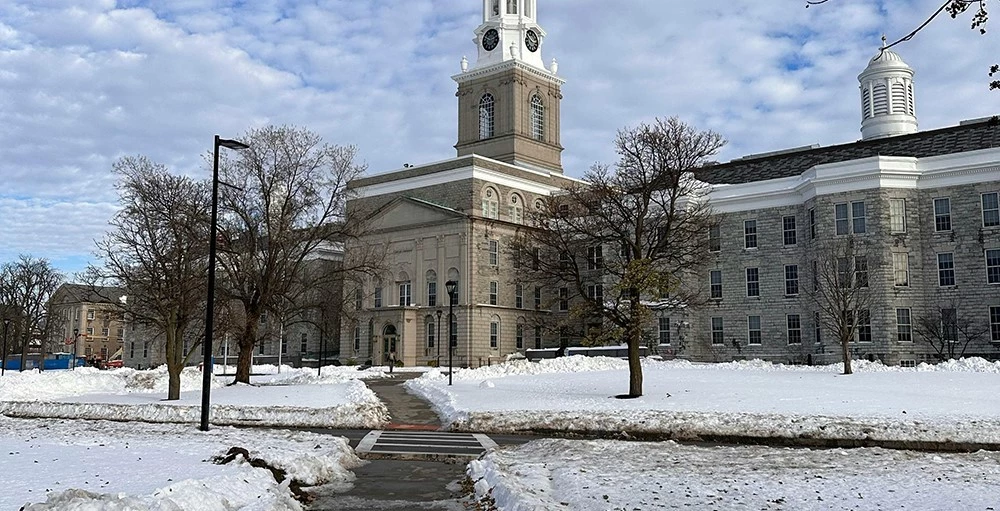Many of today’s college graduates are leaving campus with more than a diploma. They often are starting adult life burdened with high student loan debt.
A recent study by Northwestern Mutual and survey by Charles Schwab reveal an alarming trend:
- The average debt of those in Gen Z (born 1997 and after) is $14,700.1
- The average debt of millennials (born between 1981 and 1996), excluding mortgages, is $27,900.1
- Average student loan debt has doubled in the last 20 years.1
- More than 60 percent of U.S. adults do not have an emergency fund.2
- Of the millennials who carry credit card debt, almost half are using them to pay bills.2
This debt crisis has far-reaching effects.
Mental Health
The Northwestern Mutual 2019 Planning & Progress Study1 revealed that recent college graduates are experiencing high levels of money-related stress and health problems:
- 43 percent of Gen Z and 45 percent of millennials said they feel guilty about their debt at least monthly.
- 20 percent said they have experienced an Illness caused by financial stress.
- Almost half of all surveyed said they are anxious about their debt at least monthly.
College and University Fiscal Health
Financially stressed students are more likely to:
- Drop out: A LendEDU survey found that about one-half of all drop outs are due to financial issues.3 As dropout rates increase, enrollment and alumni contributions go down.
- Reduce their class load and chances of graduating: It is not unusual for financially stressed students to reduce their class load to part-time status in order to save money on tuition and have more time for employment. It is far less likely that a part-time student will graduate, even in eight years, according to the National Center for Education Statistics.
U.S. Economic Health
The U.S. economy as a whole is feeling the pinch from skyrocketing debt.
Although millennials, Gen X (born between 1965-1980) and Baby Boomers (born between 1946-1964) carry a similar debt load, millennials have higher student loan and credit card debt.
According to a survey by NBC News and GenForward4, this debt load is impacting more than just millennial wallets:
- 34 percent delayed buying a home
- 14 percent delayed getting married
- 16 percent delayed having children
These choices affect the backbone of our economy.
Student Financial Wellness Programs Can Help
When burdened with high student loan debt, financial wellness can seem unattainable. That’s why teaching financial wellness before college graduation is important.
A Sallie Mae report shows that students don’t want to go into debt--it’s a last resort.
In fact, 33 percent want more information on how to pay for college beyond student loans, and 38 percent want to learn about personal finances in general.5
An adaptive financial wellness program can teach students how to:
Create and follow a budget: Prompts students to create a budget based on different categories of income and spending. Then the student can budget to track their money.
A Charles Schwab survey found that the average American, even those who feel financially strapped, spend an average of $483 each month on non-essential items.2
Learn about credit card debt: Most students do not understand how quickly interest can add up when only making the minimum payment on credit cards each month.
Understand student loans and find alternatives: The U.S. Financial Literacy and Education Commission determined that students do not understand student loans, including how interest will affect the final payout.
According to NerdWallet, they also do not understand that taking a forbearance does not stop the interest from growing.6
By providing a financial wellness program, educational institutions can help students make good decisions and get them on the path to fiscal responsibility.
For more information about using financial wellness to combat student debt, read our full “Diplomas, Debt & Default” report.
1 - https://news.northwesternmutual.com/2019-09-17-U-S-Adults-Hold-An-Average-Of-29-800-In-Personal-Debt-Exclusive-Of-Mortgages
2 - https://content.schwab.com/web/retail/public/about-schwab/Charles-Schwab-2019-Modern-Wealth-Survey-findings-0519-9JBP.pdf
3 - https://lendedu.com/blog/college-dropouts-student-loan-debt/
4 - https://www.nbcnews.com/news/us-news/poll-majority-millennials-are-debt-hitting-pause-major-life-events-n862376
5 - https://news.salliemae.com/sites/salliemae.newshq.businesswire.com/files/doc_library/file/SallieMae_MajoringinMoney_2016.pdf
6 - https://www.nerdwallet.com/blog/average-credit-card-debt-household/








